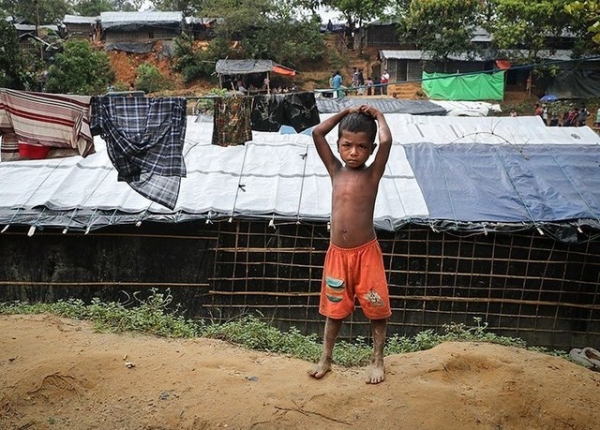On 14th May, during a press briefing at the Palais des Nations in Geneva, the UNHCR spokesperson Andrej Mahecic reiterated the need for international commitment in support of Rohingya refugees.
The Rohingya are a religious and ethnic minority who live mainly in the north of Rakhine state, Myanmar. Since 2017 they have been persecuted with increasing severity by Myanmar military forces. Most Rohingya refugees have fled to nearby Bangladesh to escape this violence. To date, almost 1.4 million people require humanitarian assistance as a result of this crisis.
The Joint Response Plan (JRP), launched in 2021 thanks to the combined efforts of 134 UN agencies, several NGOs, and the Government of Bangladesh, seeks to meet these needs in the Cox’s Bazar District, the area of Bangladesh where most refugees now reside. The plan provides 943 million US dollars towards fulfilling the JRP’s commitments to four objectives, namely; i) protecting Rohingya refugee women, men, girls and boys; ii) delivering lifesaving assistance to the population in need; iii) fostering the wellbeing of host communities and iv) working towards sustainable repatriation of Rohingya refugees to Myanmar.
The need to provide aid to Rohingya goes beyond guaranteeing their survival or physical safety as refugees. The JRP aims to secure fundamental human rights for a population that has been deprived of education, options for a decent life, and part of their future for the past four years. For this reason, UNHCR spokesperson Mahecic emphasized the importance of the Rohingya’s integration in Bangladesh or their safe repatriation to Myanmar to avoid further displacements and risky life journeys.
In the conclusion of the briefing, Mahecic noted that, despite the worsening of the crisis due to the COVID 19 pandemic, the Government of Bangladesh has managed the spread of the virus in Rohingya camps and surrounding areas effectively - although the tracing of the virus remains inefficient. For this reason, Mahecic encouraged the international community to continue supporting the state of Bangladesh and Rohingya refugees as the crisis evolves.
To read more, visit:
https://reliefweb.int/sites/reliefweb.int/files/resources/2021_jrp_with_annexes.pdf
https://gho.unocha.org/rohingya
Author: Martina Ravagnani; Editor: Alexander Collin







